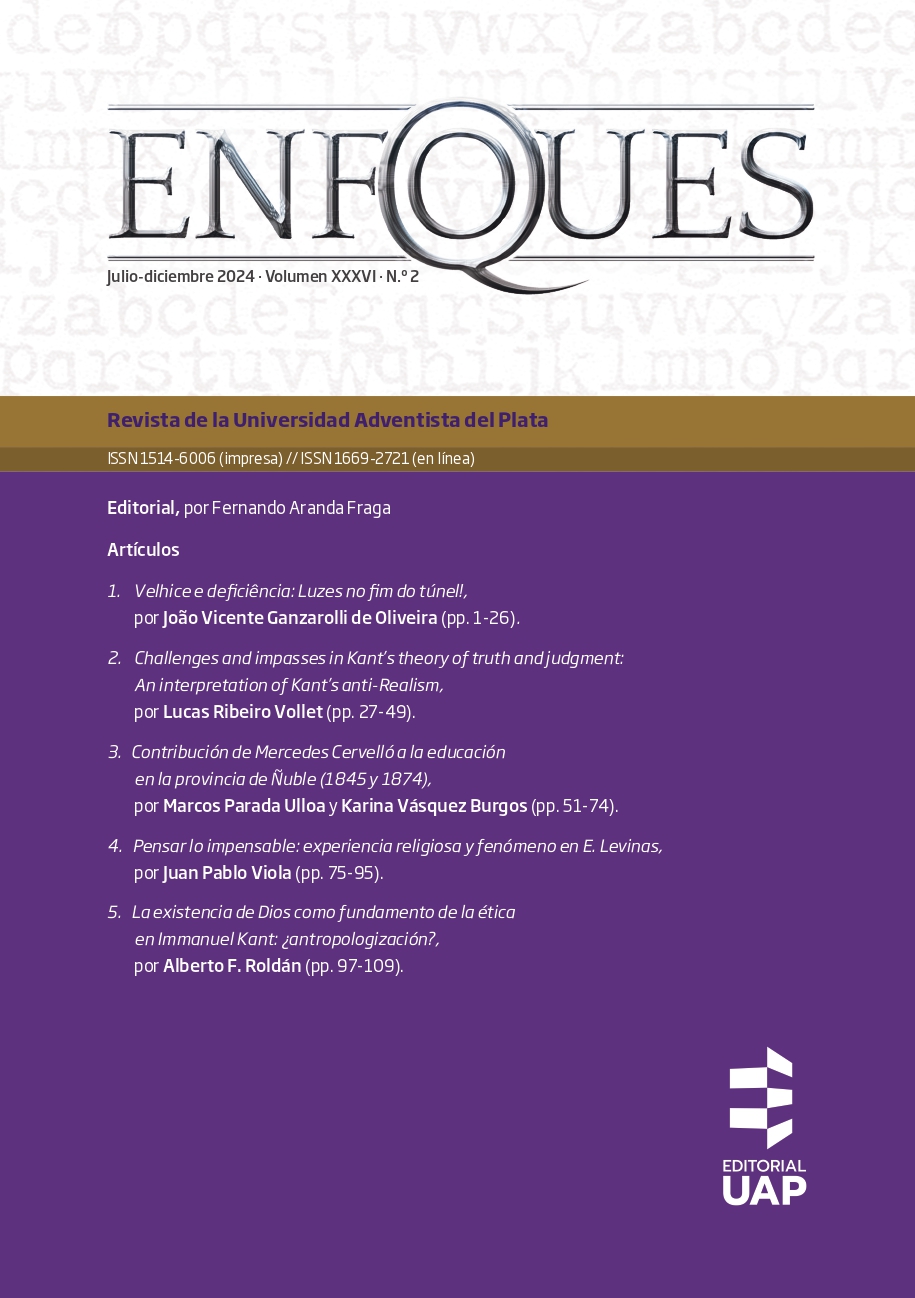Challenges and impasses in Kant’s theory of truth and judgment: An interpretation of Kant’s anti-Realism
DOI:
https://doi.org/10.56487/enfoques.v36i2.1191Keywords:
Idealism — Anti-realism — Kant — Apperception — TranscendentalAbstract
This article has three objectives. The first is to show the inevitable ambiguity between realism and idealism in Kant’s work. The second is to show the nature of Kantian realism as his response to the skeptic and a reflection on the objective distinctness of representations. The version of empirical reality proposed as the answer to the skeptic, however, has overt elements of anti-reality: it is built in the tension between the idea of proof and the idea of truth. Kant employs the theory of apperception and judgment, which functions by generating pure conceptual parameters (categories) to address this tension. The manner in which Kant’s theory of apperception and judgment offers solutions to the challenge of aligning truth and proof is in line with epistemic, anti-realistic, anti-metaphysical, and non-classical approaches to logical representation (which aligns with Kant’s transcendental logic). Lastly, we will present an overview of the discourse surrounding the nature of Kantian empirical realism and compare it to the version of “reality” advocated by metaphysical perspectives, empirical science, and common sense.Downloads
Download data is not yet available.
Downloads
Published
2024-12-30
Issue
Section
Articles
License

This work is licensed under a Creative Commons Attribution-NonCommercial-ShareAlike 4.0 International License.




